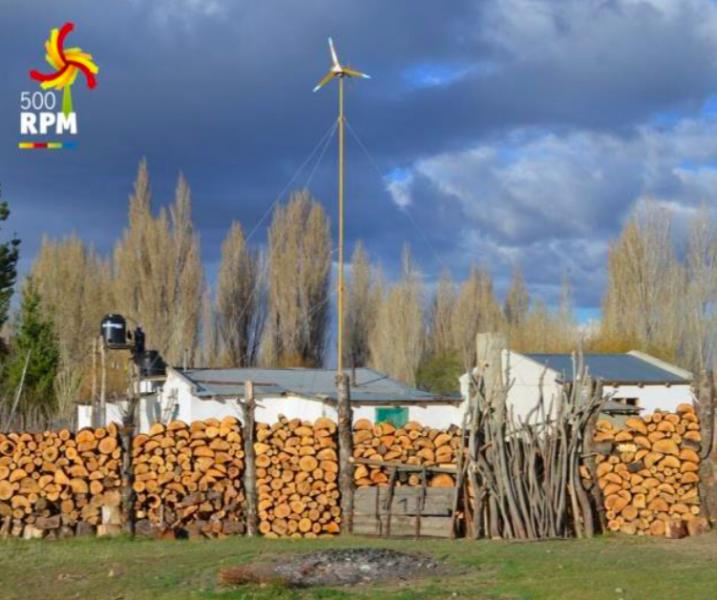Biraj Gautam and Rabin Shrestha share their lessons from the latest visits to the micro hydro power sites in Jumla and Baglung.
Small wind for productive use: The socio-economic advantages of wind energy for family operators in Argentina
Our partner network Wind Empowerment set up three small wind turbines in different rural areas in Argentina to analyze the productive use of such systems. Close monitoring and impact evaluation revealed now insightful results of the socio-economic advantages for families and farmers that installed a Piggott wind turbine. Link to the project
Altogether, three different regions with three different operators have been selected by the regional project partner 500rpm for this purpose. In two sites the full systems have been installed and their operation monitored for several months. The system for the third site (a camping area) is still in development. The first project analyzed the impact of wind power on an egg farm (in Corralito, Rio Negro Province) and the second on a horticultural farm in Costa del Lepá, Chubut Province. Analysis on the impacts of wind turbines revealed some interesting outcomes for the beneficiaries of the project and productive use of small wind turbines.
- Wind power generating lighting in poultry houses increased productivity around 30% in winter and 15% in summer.
- The pumping system for irrigation based on wind energy actually increased the monthly income of the participating farmer family by 90$ due to the removal of diesel-powered pumping systems.
- Preliminary estimates for small wind power on the camping area assume that it could reduce the fossil fuel consumption about 65% and connected costs of 1400 USD per year. Also, the generated energy through wind turbines could provide sufficient sustainable energy for lighting, freezers, television, washing machine, radio and charging of cell phones or flash lights.
The demonstration projects in operation already provide some positive impacts in the productivity of the intervened economic activities. Moreover, the potentials for more significant impacts became evident at this intermediate stage of the project. For instance, by switching from flood irrigation to drip irrigation the horticultural farm would be able to double its production. This would also reduce the water needs and allow for using part of the generated power for improving domestic services, for instance by powering wash machines and refrigerators.
Our regional partner 500rpm is working in collaboration with other locally active organization such as INTA (National Institute for Agriculture Technology) and the Agrotechnical School of Cholila in order to provide the agro-technical support needed for improving the productive integration of the wind power.


